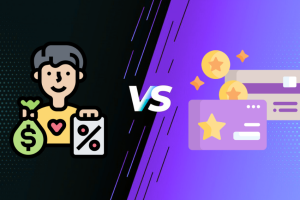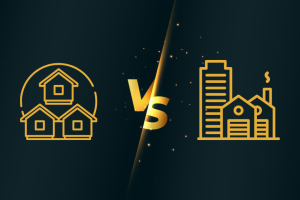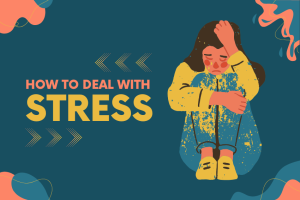It’s pretty much impossible to imagine what life would be like without the internet. Almost anything you can think of has been affected by the internet in some way. This globally connected network system started as a way to allow people to access information quickly. And this, it does. However, the internet has grown into so much more than this. Our high street, our school, our department store, our hospital – the internet not only powers our world but is the first place we turn to when we want to do anything. So, how can we pin down the importance of the internet in our daily lives?
Importance of The Internet in Education
The internet has changed education so much. Whether it’s going home to look up a few facts as homework tasks, apps to help you study, or the ubiquitous Kahoot game played in schools everywhere, education is never going offline again.
1. Video calls
The internet has changed the face of education in numerous ways. Online classes that students can attend from the comfort of their own homes have made education much more accessible. It’s widespread for young students in China, for example, to participate in online video classes to learn English at the weekends. And, of course, Zoom has gotten plenty of use over the pandemic—even prestigious universities like Yale and Harvard host some free online classes. But, of course, this also means there’s no excuse for not turning up when you can log on anywhere.
2. Games
When school’s out and it’s time to relax, there are now plenty of fun educational games, too. From the early days of Adobe Flash and CoolMathsGames to mobile apps like Memrise and Duolingo, learning from home is now a piece of cake for all ages. Whatever approach you prefer, whatever subject you’re more interested in, you’re sure to find software and resources to fit your needs.
3. Studying and research
It wasn’t long ago that students would have to haul vast tomes of textbooks back and forth to consult and read – this is still a reality in many places. Massive encyclopaedias, ancient reference books, dusty old CRT computers – the days before Google and smartphones really were the dark ages! Nowadays, any time anyone has a question, they just type – or speak – it into Google and get an answer straight away.
If Google still doesn’t quite have the answer – a rare occurrence! – there are always online discussion forums to fall back on. Whether it’s the portal for your specific school, like Edmodo, or a country-wide or subject-oriented site, or even just Facebook, discussing your query with similar people on the internet generally gets you closer to where you need to be,
Importance of The Internet in Day-to-Day Life
A good connection is a must for most people, at least in urban areas. Without it, you couldn’t plan your commute, check the weather, find out about events, have entertainment, be unable to keep in touch; the list goes on. What would you do?!
1. Communication
Keeping in touch with friends and family around the globe is simpler than ever these days. Even toddlers can FaceTime grandma! The internet enhances many relationships, whether it’s just a voice call after the working day, an occasional meme from a friend or the big monthly family video call meeting. Some relationships are online only, or they start online. Rather than having pen pals, for example, some people have formed friendships through email or instant messaging. And then there’s online dating. Apps like Bumble and Tinder are great for couples to meet and conveniently plan dates.
2. Entertainment
The internet has revolutionized the world of entertainment, too. Since the first YouTube clip went viral, streaming sites like Netflix and on-demand TV websites have burst onto the scene to provide us with what we want, whenever we want it. Of course, this has meant increased piracy. However, the internet also means increased accessibility for media, too. If it’s not hobbyists translating their favorite shows into their native language, it’s the increased captioning and audio description across big streaming sites – albeit this is hit and miss.
The internet has also brought the entertainment world together for increased interaction. Before, if you wanted to discuss theories about a drama you particularly liked, you’d have to buy a magazine or something. But now you can log onto forums and social media to discuss shows live using hashtags! Plus, the days of waiting for a show to arrive in your country or region are gone. Now, you can access it online as soon as it comes out… one way or another.
3. News
But of course, we can’t leave out the internet’s impact on journalism. One thing hasn’t changed – people still get their updates while taking a rest. However, the format of these updates has changed considerably. Papers have gotten smaller, and much of their content has moved online. If there’s something specific you want to follow, you can sign up for hourly updates. The content is richer – you can zoom in on colour photographs and even see clips and videos of events. However, this rich content is getting easier to fake, too – it wasn’t so long ago that footage from a videogame was accidentally used in a report about the Ukrainian war.
4. Health
Did you know that you can now consult physicians online? If you want to check a cut or lump, you can simply send a photo across to your GP for them to check. You can even get your medication delivered to your door with only a soft copy of the prescription. On top of this, a fitness tracker or smartphone app allows you to track information like step count, heart rate and sleep quality over time. If you like, you can get competitive and see if your step count is average for your age group. You can also challenge your friends or colleagues to see who can move the most in a week. As well, online health classes help to make working out from home fun, safe and effective.
Importance of The Internet around the world
As globalization increases, we learn so much about each other’s cultures and traditions. Indeed, these greater connections make the world a better place. Even in the most remote, rural areas, someone shares stories on a smartphone. So, what effect does the internet have around the world? Let’s take a look:
1. Promoting cultural traditions
Until recently, people still believed somewhat ignorant myths about some regions; French people routinely ate slugs and frogs, for example. However, the internet has allowed sharing of so much of different cultures. As a result, you see so many rich cultural videos online, whether it’s delicious traditional recipes on Youtube or aspects of your culture on Tiktok.
2. Changing lifestyles
Where do you get your fashion ideas from? Where do you buy your clothing, even? Where do you check out new recipes and maybe even pick up an ingredient you’ll need for it? Where do you get information about subjects you are interested in, and how did you learn about these things in the first place? All online, right? The internet has a significant influence on how people live their lives. Western culture has now truly spread across the globe, with the effect popping up all over the place. Equally, though, new ideas and genres have cemented themselves with ease. K-pop, for example, has caught on incredibly quickly!
It’s not just popular culture, either – the internet is changing people’s lifestyles for the better. Digitization now empowers African women to access water, food, education, clothes, jobs, health care, and more.
3. Politics
Democracy is a cornerstone of society. So, if someone wants to share a campaign, what better way to spread the word than through social media? The internet is a medium of mass communication. So, why not use it to express your views? Many politicians use the internet to share their campaigns and agenda, and more and more people are expressing themselves online.
4. Relationships
Yes, social media helps people around the world form new relationships. There are hundreds of networking platforms and dating sites online to help people build relationships of all kinds. You can meet a business partner from another country, date someone who lives miles away, meet people from completely different cultures to yours and learn a new language. You can learn so much online.
I hope that you understand importance of the internet in daily life and you’ll want to have a fast connection. There are many ways you can access the internet. Mobile data on your phone, for example. You could also use a computer at the library to do some research. However, if you want a fast way to use the internet on a computer in your home, you should invest in a broadband line.


